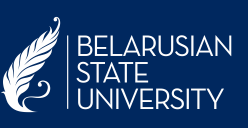
 |
Ïåäàãîãèêà èíôîðìàòèêè |
PEDAGOGY OF COMPUTER SCIENCE |
ISSN 2708-4124 |
|
EDUCATIONAL ROBOTICS IN SECONDARY SCHOOL: AN EMPIRICAL STUDY OF MOTIVATION AND STEM SKILLS G.V. Vanykina, T.O. Sundukova FULL TEXT: PDF (Rus) Abstract Educational robotics is increasingly present in secondary education and is gaining a large practical application, especially with the advent of Championships such as the FIRST® LEGO® League. These competitions are based on the globalizing orientation of different areas of the curriculum, so we believe that it is directly related to the achievement of combined (scientific, technical, engineering, artistic and mathematical) skills. We present a study that systematizes data based on the analysis of the results of works by foreign authors on the impact of studying robotics in high school on the educational process. The results suggest that both teachers and students believe that robotics contributes to the development of interest and scientific approach, as well as the formation of social skills through teamwork. Key words Educational robotics, secondary education, STEM skills, motivation to learn, project approach in training, teamwork, competence approach. Received: 09/14/2020; accepted for publication: 09/20/2020 For citation: ________________________________________ Vanykina G.V., Sundukova T.O. Educational robotics in educational institutions: an empirical study of motivation and STEM skitls. Electronic scientific and methodological journal “Pedagogy of computer science”. 2020;3. Http://pcs.bsu.by/2020_3/6ru.pdf Content is available under license Creative Commons Attribution-NonCommercial-ShareAlike 4.0 International License. About the authors: G. V. Vanykina
T. O. Sundukova
References 1. Jimenez M., Cerdas R. La robotica educativa como agente promotor del estudio por la ciencia y la tecnologia en la region atlantica de Costa Rica. Congreso Iberoamericano de Ciencia, Tecnologia, Innovacion y Educacion. 2014; 1: 1-18. 2. Sundukova T.O., Vanykina G.V. Obrazovatel'naja robototehnika v sovremennoj shkole [Educational robotics in the modern school]. Nauka, obrazovanie, innovacii: aprobacija rezul'tatov issledovanij. 2018; 1: 607-612. (In Russian) 3. Kandlhofer M., Steinbauer G. Evaluating the impact of educational robotics on pupils’ technical-and social-skills and science related attitudes. Robotics and Autonomous Systems. 2016; Jan 1;75:679-85. 4. Odorico A. Marco teorico para una robotica pedagogica. Revista Informatica Educativa y Medios Audiovisuales. 2004;1(3):34-46. 5. Mishra P., Koehler M.J. Technological pedagogical content knowledge: A framework for teacher knowledge. Teachers college record. 2006; Jun 108(6):1017-54. 6. Bazylev D., Margun A., Zimenko K., Kremlev A., Rukujzha E. Participation in robotics competition as motivation for learning. Procedia-Social and Behavioral Sciences. 2014; Oct 7;152:835-40. 7. Vega-Moreno D., Cufi X., Rueda M., Llinas D. Integracion de robotica educativa de bajo coste en el ambito de la educacion secundaria para fomentar el aprendizaje por proyectos. IJERI. 2016;6:162-175. |